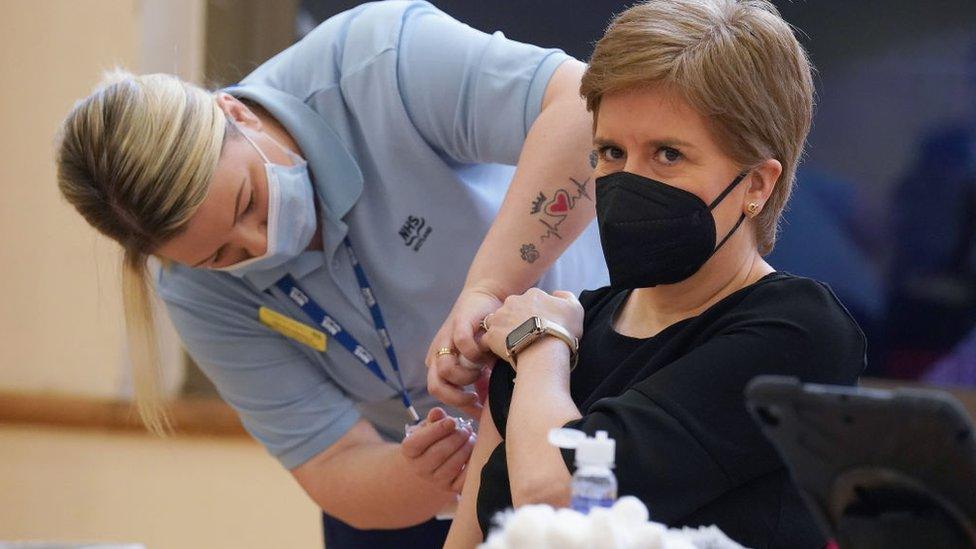Scottish officials 'froze' at start of Covid pandemic - academic
- Published
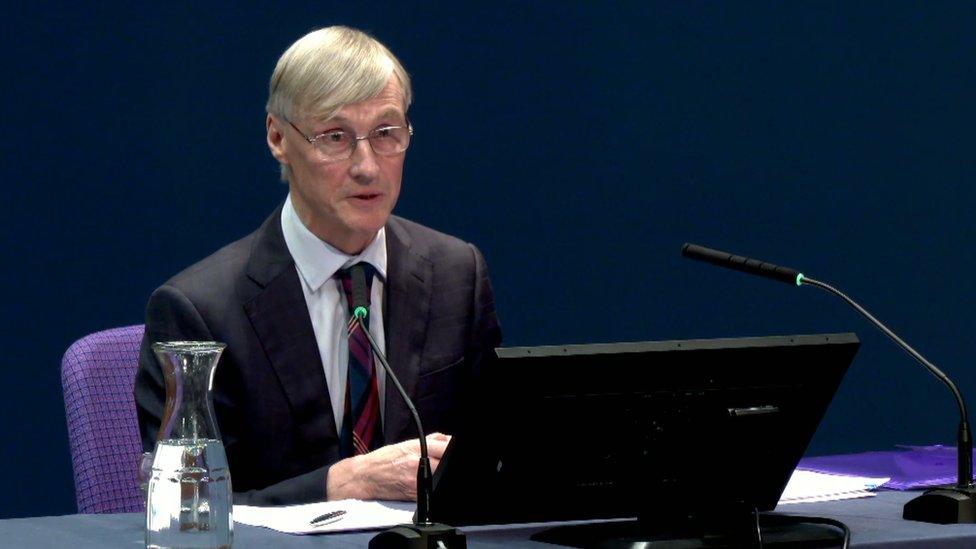
Prof Mark Woolhouse said stay at home orders were not necessary
Early warnings about coronavirus were not listened to as senior Scottish government officials "froze", the UK Covid Inquiry has heard.
Prof Mark Woolhouse, a member of the Scottish Government COVID-19 Advisory Group, also claimed hundreds of people may have died after being told not to "bother" the NHS.
He told the inquiry people were misled about how the crisis would unfold.
And he said orders to stay at home and cease outdoor activity were not needed.
The Scottish government has said it is committed to responding to the inquiry.
A spokesperson said previously it would be "inappropriate" to comment on the "detail of evidence being considered" but that learning lessons from both the Scottish and UK inquiries would be "vital to prepare for the future".
The inquiry was shown an email Prof Woolhouse - professor of infectious disease epidemiology at the University of Edinburgh - sent in January 2020 that warned the health system would become "completely overwhelmed" within a year if action was not taken.
Asked if he felt that medical advisers to the government "froze" when confronted with the data, he replied: "Yes."
He said then chief medical officer Dr Catherine Calderwood was not "listening" to his warnings in the early months of 2020.
But he added officials became more receptive following increased involvement from Dr Gregor Smith, who ultimately succeeded Dr Calderwood after she resigned for breaking Covid rules.
Prof Woolhouse said it was not until late February that he secured a meeting with Dr Calderwood, two days before the first case was confirmed in Scotland.
He said he warned no action would result in the NHS being overwhelmed but it was not until almost a month later before a full lockdown was announced.
Prof Woolhouse told the inquiry when Scotland went into lockdown he did not think the Scottish government had "the faintest idea how long we would be in it for".
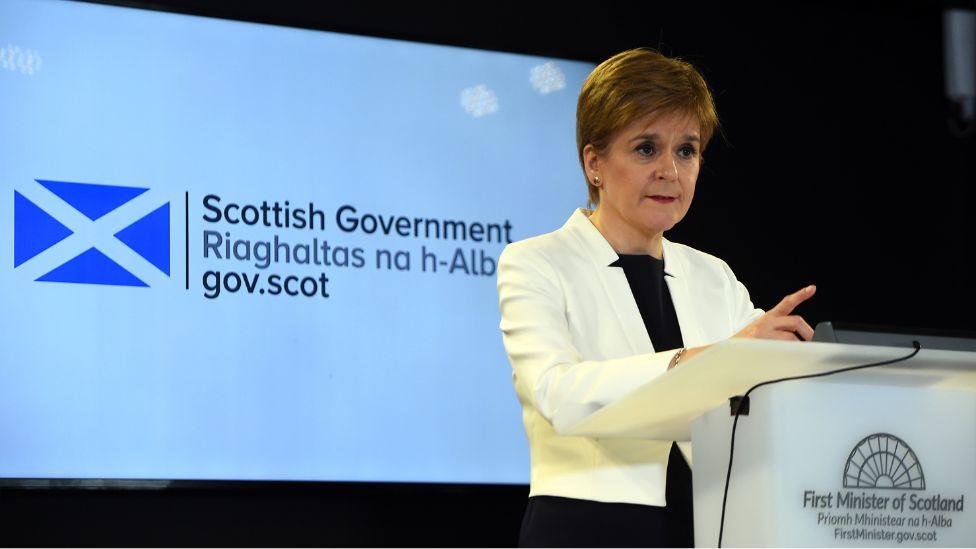
Former first minister Nicola Sturgeon announced a nationwide lockdown in March 2020
He also took aim at the Scottish government's policy that no Covid death was "acceptable".
Prof Woolhouse described the statement, made in policy documents and by then first minister Nicola Sturgeon, as "empty rhetoric" that "devalues non-Covid deaths".
"It misleads everybody, it misleads the public," the expert said.
"It gives an entirely false impression of what the future holds, how this pandemic is going to look."
Prof Woolhouse said the only way to achieve the policy would be to implement a "zero Covid" plan, consisting of "indefinite" lockdown.
He said such measures were "never deliverable".
During the first lockdown in 2020, Scots were urged to stay at home to "protect the NHS and save lives", external.
Prof Woolhouse told the inquiry - which is sitting in Scotland this month - advice "not to bother the NHS" unless it was absolutely necessary led to thousands of deaths across the UK and "probably hundreds" in Scotland as hospital admissions "fell off a cliff".
"Most of the hospitals in Scotland had their quietest time in living memory during the first lockdown because no-one else was going to hospital," he said.
"And a lot of those people should have been going to hospital.
"They died because the focus of the government was on preparing the NHS in Scotland for Covid."
Prof Wooldhouse added: "No Covid death was acceptable but other kinds of deaths apparently are and they rose."
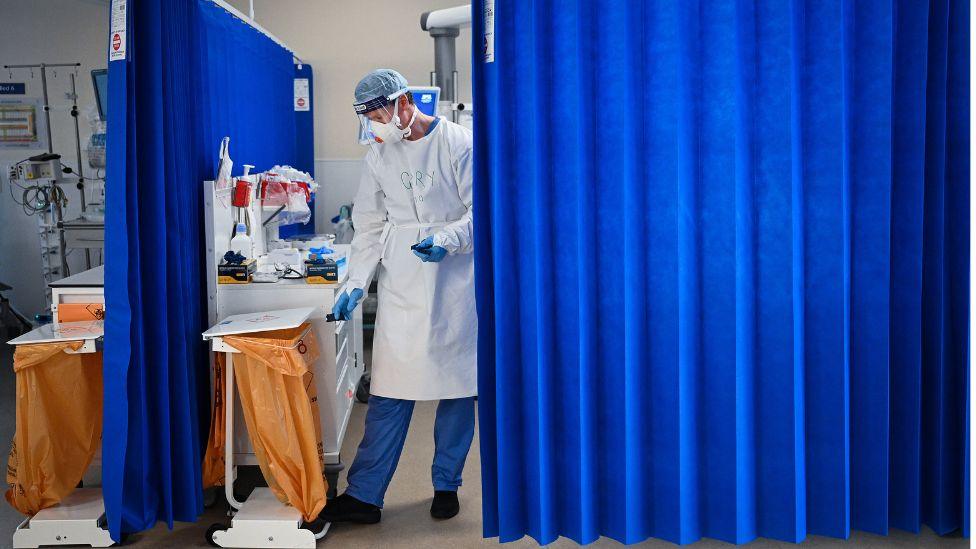
He went on to argue that orders for Scots to stay at home were "never necessary" because the R number - a measure of the disease's reproduction rate - was already decreasing before such measures were put in place in March 2020.
The academic said that from early on in the pandemic there was "very good evidence" that Covid transmitted "very poorly" outdoors.
"There was pretty much zero public health benefit to keeping us indoors," he told the inquiry. "That was not required at all we never needed to do that."
Prof Woolhouse said detailed public health assessments would need to be carried out on large events, such as football matches, but that rules against people going on solo hillwalks were "utterly absurd".
He added: "Another good example that was an absolute outcry in the summer of 2020 was that people were going to beaches.
"There was never an outbreak of Covid anywhere in the world linked to a beach. It was fine."
School closures
He said school closures were "justifiable" in the initial Covid wave in the first months of 2020.
But the expert added it "quickly became apparent" schools were contributing "so little" to the spread of the disease.
And Prof Woolhouse said that there was "essentially no danger" reopening them would take infection rates past the key "tipping point" - the R number becoming greater than 1.
The academic also told the inquiry he felt especially strongly about how children were treated during the pandemic.
"It wasn't necessary and we did it anyway," he said of school closures.
Dr Calderwood has been excused from giving evidence on medical grounds.
Her successor, Dr Smith, denied on Monday there had been a lack of urgency in reacting to Covid-19 in early 2020.
First Minister Humza Yousaf, who served as health secretary between 2021 and 2023, is due to give evidence to the inquiry on Thursday.
- Published21 January 2024
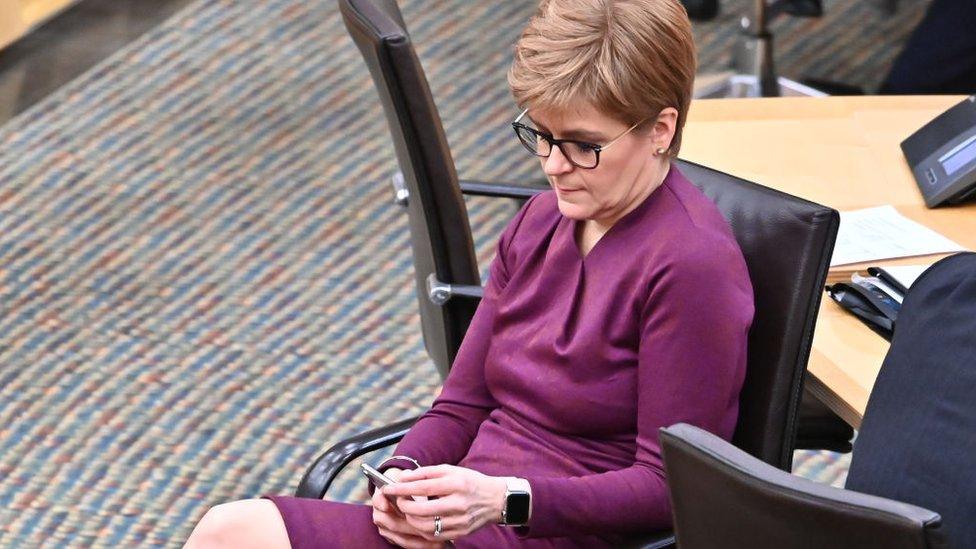
- Published16 January 2024
